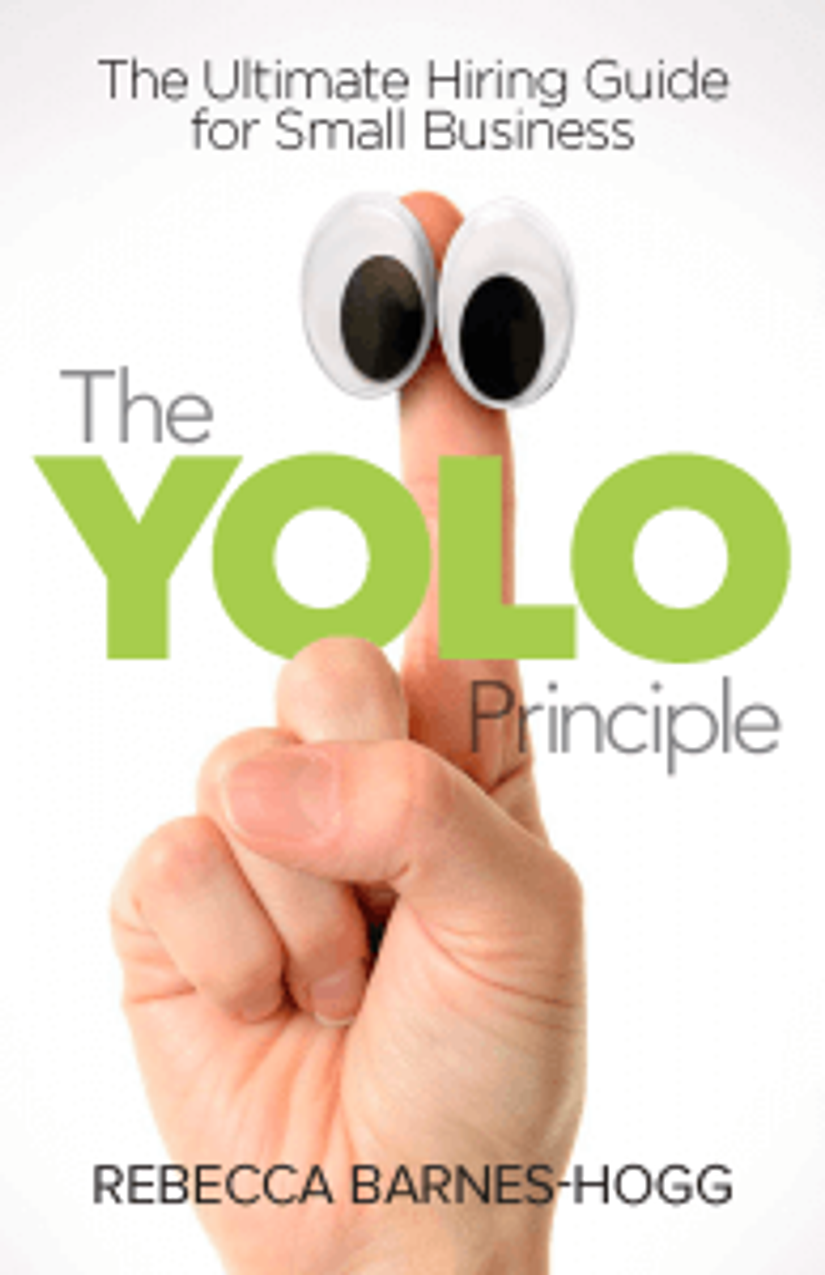Women Entrepreneurs: How to Hire Employees Wisely
Advice from a small-business expert to help your enterprise grow
One of the toughest things for a small business owner to do is to hire employees. This is true for male and female entrepreneurs, but since I’m writing about the women owners over 50 for Next Avenue these days, I’ll focus on them. I have a strong personal connection to the topic. Even with my one-woman media company, the decision to bring on a summer intern or someone to help manage social media is excruciating for two reasons: cash flow and control.


But sometimes, bringing on a staffer or more than one is essential for your business to succeed and grow. Unfortunately, Rebecca Barnes-Hogg, author of The YOLO Principle, The Ultimate Hiring Guide for Small Business told me, not asking for help is one area where women entrepreneurs can get hung up.
“Women often feel they have to be superwoman and do everything. After all, they are usually highly successful and often creative people. They tend to believe they can do everything themselves. That makes delegating difficult,” said Barnes-Hogg.
And for many 50+ women business owners, adding staff is more than a cold-eyed business decision.
“Senior female entrepreneurs tend to be emotionally tied to or invested in their businesses,” Barnes-Hogg said. “That's a good thing when creating your product or service. When it comes to hiring, we want the people we hire to make that same emotional investment. The problem becomes how to identify whether a prospective employee will share that emotional tie. Women often say they rely on their gut instinct. That's great as long as you take the time to validate that gut instinct through other methods.”
If you’re a 50+ female entrepreneur and considering adding staff, here’s some smart advice from Barnes-Hogg.
Next Avenue: What do first-time women entrepreneurs, especially those in their 50s and 60s, do wrong when it comes to hiring?
Rebecca Barnes-Hogg: Most women entrepreneurs have no idea how much they should delegate. I recommend writing down everything you do, and I mean everything. Then go through that list with an eagle eye and cross off everything that doesn't produce revenue and could be done by someone else. This is an eye-opening moment.
Another stumbling block is approaching hiring like it’s a field of dreams — post a job ad and the perfect candidate will come.
Job boards are decreasing in effectiveness, while referrals are increasing. That means working your networks to find connections and build relationships with prospective candidates.
It also means approaching hiring like marketing. You need to show why people would want to work for you and not for another company. Job seekers today want to know the impact and value of the work they do.
Is hiring harder for women owners who have had corporate careers?
It can be even more difficult. They learn a hiring system from the company in which they worked and try to replicate it in their business. You need to create your own system.

What’s your advice about how to do it right?
I have four principles: clarity, culture, communication and consistency.
The most important is clarity, and it’s the hardest piece. If you want to avoid costly hiring mistakes, spend time defining your needs and wait to hire the best person rather than hiring quickly to relieve pain. Often when you take time to clarify your needs, you realize what you thought you needed and what you actually need is very different.
The example I use in my book is the woman entrepreneur who thought she needed a receptionist when in fact she needed a salesperson who could also do administrative work.
How can you know when it's time to hire someone?
When the cost of doing the work yourself outweighs the cost of paying someone else to perform the tasks.
While you can certainly fix your website or schedule your social media posts, does it make sense for you to spend your time doing that? Or is it more important that you do only the things you can do, like networking and building a pipeline of business?
Paying someone $10 or $15 an hour for work that takes you away from generating thousands of dollars in business makes more sense. You need to hire someone and that can be in the form of a virtual assistant, a freelancer, a project-based consultant or a part-time or full-time employee. Today, hiring someone is more flexible than ever before.
What’s the best way to negotiate pay versus benefits and flexibility for the employee?
According to Jobvite’s 2017 Job Seeker Nation Study, 50 percent of job seekers want to understand their value to an organization. The survey also showed that 48 percent of job seekers would take at least a 10 percent pay cut to take a job they are passionate about. That’s a huge opportunity to emphasize factors other than pay as part of your hiring strategy.
I advise clients that honesty is best. Provide your candidates with a realistic picture of what the job entails and what it’s like working at your company. Resist the temptation to omit or gloss over the less attractive parts of the job.
In every aspect of your hiring process, communicate what you can offer. Examples might be growth and development opportunities, the ability to work closely with leadership, interesting projects, flexibility to do things differently and work-life integration that allows work and personal life to combine and become more effective. When you do this, you’ll find that negotiating with your prospective employees is easier because you’ve set expectations from the beginning.


